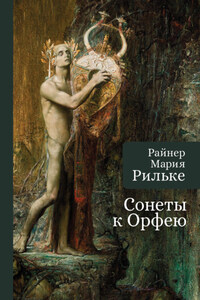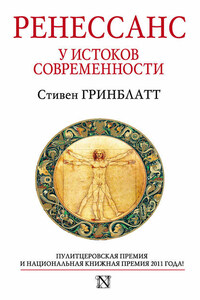An elderly woman looked up from the crystal globe before her. The sound of horse’s hoofs, clattering up to the veranda, had caught her attention. But the hard, gray eyes had not yet recovered their normal frigidity of expression. There were still traces in them of the groping mind, searching on, amidst the chaos of a world unseen. Nor was Mercy Lascelles posing at the trade which yielded her something more than her daily bread. She had no reason for pose. She was an ardent and proficient student of that remote science which has for its field of research the border-land between earthly life and the ultimate.
For some moments she gazed half-vacantly through the window. Then alertness and interest came back to her eyes, and her look resumed its normal hardness. It was an unlovely face, but its unloveliness lay in its expression. There was something so unyielding in the keen, aquiline nose and pointed chin. The gray eyes were so cold. The pronounced brows were almost threatening in their marking and depression. There was not a feature in her face that was not handsome, and yet, collectively, they gave her a look at once forbidding, and even cruel.
There was no softening, there never was any softening in Mercy Lascelles’ attitude toward the world now. Years ago she may have given signs of the gentler emotions of her woman’s heart. It is only reasonable to suppose that at some time or other she possessed them. But now no one was ever permitted beyond the harsh exterior. Perhaps she owed the world a grudge. Perhaps she hoped, by closing the doors of her soul, her attitude would be accepted as the rebuff she intended to convey.
“Is that you, Joan?” she demanded in a sharp, masterful tone.
“It certainly is, auntie,” came the gentle, girlish response from the veranda.
The next moment the door of the little morning-room opened, and a tall girl stood framed in its white setting.
Joan Stanmore possessed nothing whatever in common with her aunt. She was of that healthy type of American girl that treats athletics as a large part of her education. She was tall and fair, with a mass of red-gold hair tucked away under the mannish hat which was part of her dark green, tightly-fitting riding habit. Her brow was broad, and her face, a perfect oval, was open and starred with a pair of fearless blue eyes of so deep a hue as to be almost violet. Her nose and mouth were delicately moulded, but her greatest beauty lay in the exquisite peach-bloom of her soft, fair skin.
Joan Stanmore was probably the handsomest girl in St. Ellis City, in a suburb of which she and her aunt lived. She was certainly one of the most popular girls, in spite of the overshadowing threat of an aunt whom everybody disliked and whom most people feared. Her disposition was one of serene gentleness, yet as fearless and open as her beautiful eyes suggested. She was of a strongly independent spirit too, but, even so, the woman in her was never for a moment jeopardized by it; she was never anything but a delightful femininity, rejoicing wholesomely in the companionship of the opposite sex.
She and her aunt had lived for five years in this suburb of St. Ellis. They had left New York for the southwest because the profession of the elder woman had gained unpleasant notoriety in that city of contradictions. The calling of the seer had appealed well enough to the citizens individually, but a wave of moral rectitude, hurling its municipal government spluttering upon a broken shore of repentance, had decided it to expurgate such wickedness from its midst, lest the local canker become a pestilence which might jeopardize the immortal soul of the citizen, and, incidentally, hand the civic control over to the opposition party.
So aunt and orphaned niece had moved westward, seeking immunity in a region where such obscure professions were regarded with a more lenient eye. Joan had little enough sympathy with her relative’s studies. She neither believed in them, nor did she disbelieve. She was so young, and so full of that vitality which makes for the wholesome enjoyment of life, as viewed through eyes as yet undimmed by the bitterness of experience, that she had neither time, place, nor serious thought for such matters. Her only interest, if interest it could be called, was an occasional wonderment at the extent of the harvest Aunt Mercy reaped out of the credulity of the merchant and finance-princes of the city. This, and the state of her aunt’s health, as pronounced by Dr. Valmer, were the only things which ever brought such matters as “crystal gazing” and scientific astrology into her mind. Otherwise horoscopes, prognostications, warnings, omens, passed her by as mere words to raise a smile of youthful derision at the expense of those who heaped money for such readings into the seer’s lap.
Joan was in no way dependent upon her aunt. Living with her was a matter of personal choice. Mercy Lascelles was her only relative for one thing, and the elder woman being a lonely spinster, it seemed only right that Joan should make her home under her scarcely hospitable roof. Then, too, there was another reason which influenced the girl. It was a purely sentimental reason, such as at her age might well appeal to her. A whisper had reached her to the effect that, hard and unsympathetic as her Aunt Mercy was, romance at one time had place in her life – a romance which left her the only sufferer, a romance that had spelt a life’s disaster for her. To the adamantine fortune-teller was attributed a devotion so strong, so passionate in the days of her youth that her reason had been well-nigh unhinged by the hopelessness of it. The object of it was her own sister’s husband, Joan’s father. It was said that at the moment of his death Mercy Lascelles’ youth died too. All softness, all gentleness passed out of her life and left her the hard, prematurely aged woman she now was.














